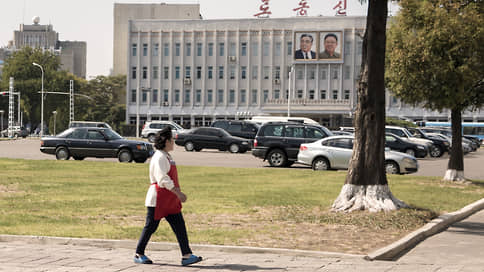The proposal of the North Korean reinsurance Future Re Company did not interest Russian insurers. Details
[ad_1]

The appearance on the Russian market of the North Korean reinsurer Future Re Company, despite the brightness of the precedent itself, will not seriously affect the alignment of forces, its participants say. According to Kommersant, the new player offered only small capacities, and possible cooperation raises many questions and creates additional risks.
“Kommersant” became aware of the details of the proposal of the North Korean reinsurance Future Re Company for Russian insurers, made at a meeting in late July. According to a Kommersant source in the insurance market, the company offered Russian market participants “small reinsurance capacities.” In particular, the volume of reinsurance capacity for property insurance amounted to up to $2 million and up to $600,000 for insurance of construction and installation risks, the interlocutor of Kommersant from among the insurers specified. In addition, according to the ARIA, in addition, reinsurance capacities were offered for property and marine insurance. Future Re Company did not respond to Kommersant’s request.
Future Re Company was founded in October 2017. Gross premium for 2022 increased by 2.5% to 1.86 billion KPW. The company generated a net profit of KPW 1.27 billion last year. The cumulative loss ratio was 62%.
The reaction of insurers to the proposal of the North Korean company was diverse. One of the large companies noted that they were not interested in cooperation with Future Re Company. Nor are they planning it in VSK. “In general, we are interested in working with new reinsurers, however, it is first necessary to resolve the issues of bilateral mutual settlements and mechanisms for mutual accreditation and recognition of ratings,” Andrey Tverskoy, head of reinsurance at Zetta Insurance, explained.
At the same time, according to lawyers, cooperation with the North Korean company may entail sanctions risks. “The sanctions regime against North Korea is one of the toughest and includes not only US and EU sanctions, but also UN sanctions. And it is in the United States that there is a high risk of introducing secondary sanctions for interaction with representatives of North Korea. The EU sanctions are more limited and prohibit only certain actions and transactions in various sectors, including the financial sector,” explains Kira Vinokurova, co-head of sanctions law and compliance practice at Pen & Paper.
Those insurers who will cooperate with it in the Russian market of services will also have risks: US law implies the possibility of disconnecting from the country’s financial system or blocking the assets of any companies engaged in any trade or provision of services and technology exchange with the DPRK, specifies the managing partner of the expert group Veta Ilya Zharsky.
And in general, according to experts, the proposed reinsurance capacities are too small to cover the needs of the Russian insurance market. The interlocutor of Kommersant in the market explains that the amounts for property or construction insurance can reach tens and hundreds of millions of dollars. In addition, the partnership creates additional difficulties: translation of documents into a foreign language, difficulties with the transfer of funds, since they cannot be made in dollars and euros, fixing conditions at the conversion rate when calculating losses, lack of an international rating, clarifies the Kommersant source.
Meanwhile, the issue of reinsurance with closed foreign markets is very acute in the Russian Federation. In fact, the main reinsurer is the state RNPK. In July, the Central Bank announced that it recognizes the monopoly position of this company, but so far does not see an alternative to it. At the same time, the regulator is conducting a dialogue with insurers to balance their interests and the reinsurer and to introduce an alternative reinsurance structure on the market. The RNPK did not respond to Kommersant’s request.
According to Aleksey Yanin, Managing Director for ratings of insurance and investment companies of Expert RA, in order to maintain market mechanisms for the formation of reinsurance tariffs, “it is important to have competition between various reinsurers, the possibility of having an alternative view of risks, alternative tariffication is important.”
[ad_2]
Source link





